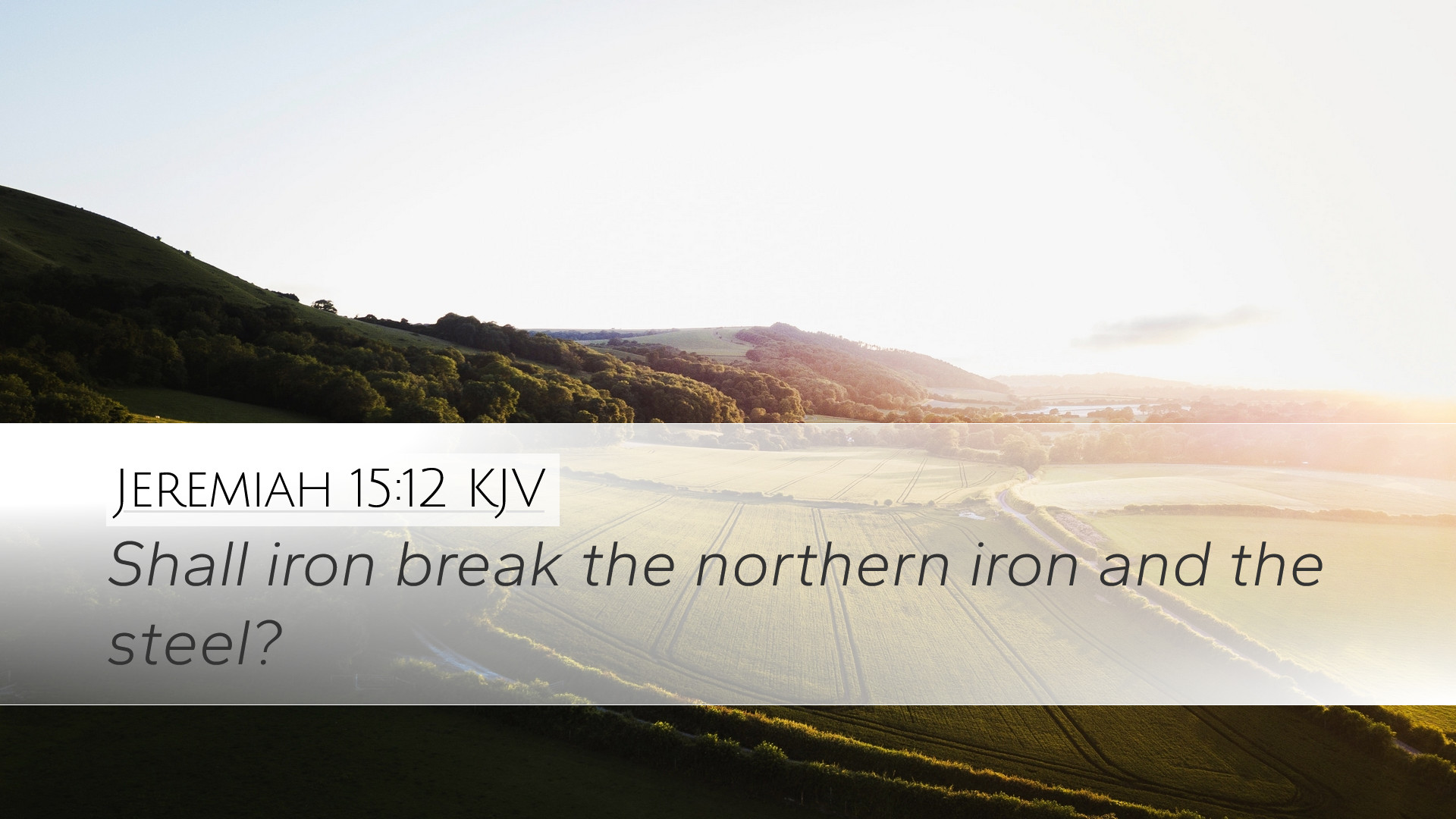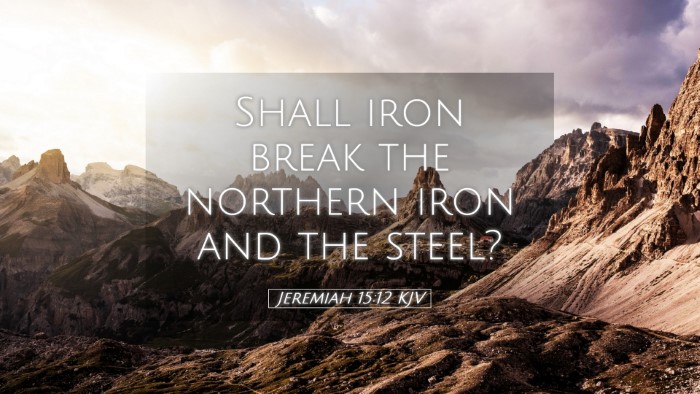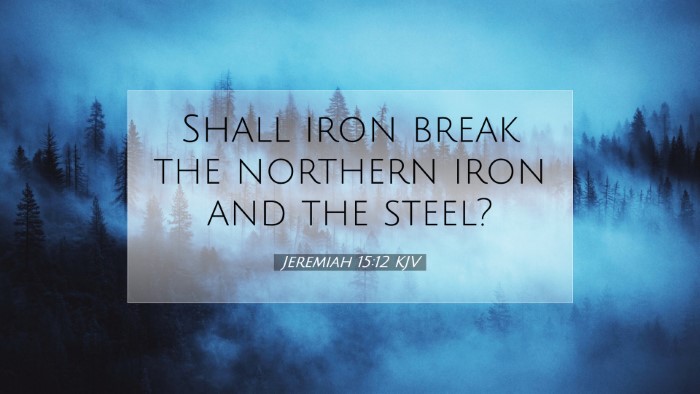Commentary on Jeremiah 15:12
Verse: "Shall iron break the northern iron and the steel?" (Jeremiah 15:12)
Contextual Background
Jeremiah's life and ministry occurred during a tumultuous period for the nation of Judah. The prophet was tasked with delivering messages of warning and judgment, which often placed him in direct opposition to the prevailing attitudes of his society. His role as a prophet was characterized by deep emotional struggles, particularly in response to the suffering and disobedience of his people.
This verse appears within a section where God is responding to Jeremiah’s lamentations regarding the difficulties faced in his prophetic ministry. As a symbol of resistance, this verse uses metaphors of strength and durability, specifically referring to iron as a representation of the formidable challenges faced by both Jeremiah and the nation’s impending judgment.
Interpretation and Insights
This verse draws a striking image with the question of whether iron—symbolizing strength and resistance—can overcome iron and steel, metaphorically portraying the opposition faced by the prophet. Various public domain commentaries provide in-depth interpretations:
Matthew Henry's Commentary
-
Natural Strength vs. Moral Authority: Henry emphasizes the futility of mere worldly power in the face of divine authority. The metaphor portrays that while external forces may seem strong, they cannot withstand the will of God.
-
Symbolism of the North: He notes that "the northern iron" may refer to the Babylonians, who were seen as invaders. Thus, Jeremiah's question rhetorically suggests that human might cannot contend against God's plans.
Albert Barnes' Notes
-
Historical Context: Barnes expounds on the specific application of the verse, reminding readers that during Jeremiah's time, the geopolitical realities involved threats from the north. He suggests that this makes the imagery particularly poignant as it relates to the prophecy of impending invasion.
-
Iron as a Metaphor: Barnes interprets iron as an emblem of oppression and the Babylon’s might, juxtaposed with the strength of God’s message and the resilience required of Jeremiah.
Adam Clarke's Commentary
-
Contradictory Strength: Clarke discusses the paradox of strength addressed in this verse. He argues that God implies that even iron cannot contend with itself, suggesting an inherent weakness within human constructs of power.
-
Theological Reflection: Clarke highlights that this verse suggests a divine sovereignty that transcends human power structures, inviting deeper theological reflection on the nature of God’s justice and the ultimate triumph of righteousness.
Theological Implications
This verse raises profound theological implications relevant for pastors, theologians, and scholars:
- Divine Sovereignty: The notion that God's plans supersede human endeavors challenges the belief in the absolute power of governments or armies.
- Hope Amidst Despair: For those in ministry, this verse serves as a reminder that even when facing formidable opposition, faithfulness to God’s calling can yield endurance and ultimately victory.
- Call to Perseverance: The question posed by Jeremiah could be seen as a call to believers to stand firm against adversity, trusting that God’s purposes will prevail.
Practical Application
For modern readers, particularly within pastoral contexts, Jeremiah 15:12 offers valuable lessons:
-
Understanding Oppression: Reflect on what “iron” represents in our current contexts—what systems or structures seem immovable? Identify how faith can guide one’s responses to these challenges.
-
Encouragement to the Weary: Draw upon this verse to provide encouragement to those who feel overwhelmed by opposition, reminding them of God’s ultimate authority over all earthly powers.
-
Sharing the Message: Emphasize the necessity of boldness in sharing God’s Word, trusting in the strength of scripture to overcome the “iron” in spiritual warfare.


